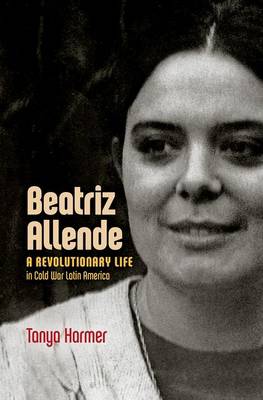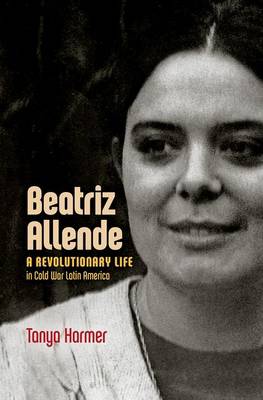
Bedankt voor het vertrouwen het afgelopen jaar! Om jou te bedanken bieden we GRATIS verzending (in België) aan op alles gedurende de hele maand januari.
- Afhalen na 1 uur in een winkel met voorraad
- In januari gratis thuislevering in België
- Ruim aanbod met 7 miljoen producten
Bedankt voor het vertrouwen het afgelopen jaar! Om jou te bedanken bieden we GRATIS verzending (in België) aan op alles gedurende de hele maand januari.
- Afhalen na 1 uur in een winkel met voorraad
- In januari gratis thuislevering in België
- Ruim aanbod met 7 miljoen producten
Zoeken
€ 57,45
+ 114 punten
Omschrijving
This biography of Beatriz Allende (1942-1977)--revolutionary doctor and daughter of Chile's socialist president, Salvador Allende--portrays what it means to live, love, and fight for change. Inspired by the Cuban Revolution, Beatriz and her generation drove political campaigns, university reform, public health programs, internationalist guerrilla insurgencies, and government strategies. Centering Beatriz's life within the global contours of the Cold War era, Tanya Harmer exposes the promises and paradoxes of the revolutionary wave that swept through Latin America in the long 1960s.
Drawing on exclusive access to Beatriz's private papers, as well as firsthand interviews, Harmer connects the private and political as she reveals the human dimensions of radical upheaval. Exiled to Havana after Chile's right-wing military coup, Beatriz worked tirelessly to oppose dictatorship back home. Harmer's interviews make vivid the terrible consequences of the coup for the Chilean Left, the realities of everyday life in Havana, and the unceasing demands of solidarity work that drained Beatriz and her generation of the dreams they once had. Her story demolishes the myth that women were simply extras in the story of Latin America's Left and brings home the immense cost of a revolutionary moment's demise.
Drawing on exclusive access to Beatriz's private papers, as well as firsthand interviews, Harmer connects the private and political as she reveals the human dimensions of radical upheaval. Exiled to Havana after Chile's right-wing military coup, Beatriz worked tirelessly to oppose dictatorship back home. Harmer's interviews make vivid the terrible consequences of the coup for the Chilean Left, the realities of everyday life in Havana, and the unceasing demands of solidarity work that drained Beatriz and her generation of the dreams they once had. Her story demolishes the myth that women were simply extras in the story of Latin America's Left and brings home the immense cost of a revolutionary moment's demise.
Specificaties
Betrokkenen
- Auteur(s):
- Uitgeverij:
Inhoud
- Aantal bladzijden:
- 384
- Taal:
- Engels
Eigenschappen
- Productcode (EAN):
- 9781469654294
- Verschijningsdatum:
- 13/04/2020
- Uitvoering:
- Hardcover
- Formaat:
- Genaaid
- Afmetingen:
- 165 mm x 239 mm
- Gewicht:
- 635 g

Alleen bij Standaard Boekhandel
+ 114 punten op je klantenkaart van Standaard Boekhandel
Beoordelingen
We publiceren alleen reviews die voldoen aan de voorwaarden voor reviews. Bekijk onze voorwaarden voor reviews.









